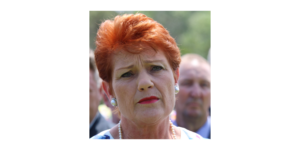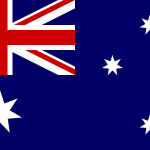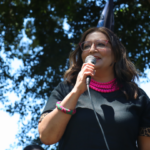Pauline Hanson Loses Defamation Case

One Nation Leader Pauline Hanson has built a political career on falsely identifying and demonising perceived threats for her own political gain, and encouraging those who support her to do the same – thereby causing division in the community and unimaginable harm to members of her targeted groups.
From accusing Asian migrants in 1996 of representing an ‘Asian invasion’ and foreshadowing that Australia would imminently be ‘swamped by Asians’, to stating in a manner reminiscent of Nazi Germany that Islam is a ‘disease’ that needs to be ‘vaccinated against’ and the whopping 3.2% of Australian residents who are its adherents are somehow conspiring to implement Sharia law across the nation, to her baseless, unhinged tirades against countless individual targets and highly offensive stunts both inside and outside parliament.
Those she selects to target are often vulnerable and disempowered, struggling to find their way in Australian society, with little means of fighting back against such a high-profile, xenophobic bully.
But it seems Ms Hanson has, for once, been brought to account for her conduct – although not by a member of one of the groups she has vilified with impunity for decades, but a fellow politician.
Defamation case
In 2020, Ms Hanson took to national television to accuse former Senator Brian Burston of sexually abusing a female staff member in his parliamentary office, and that he had also assaulted One Nation Chief of Staff, James Ashby, without provocation.
She repeated those allegations on various social media platforms and in text messages.
Mr Burston commenced defamation proceedings in relation to the publications and, earlier this week, Federal Court Justice Robert Bromwich ruled against Ms Hanson, ordering her to pay $250,000 for seriously damaging Burston’s reputation.
Mr Burston failed to prove a number of other imputations he claimed were defamatory, including that he harassed a female staffer in his office and brought the Senate into disrepute. He has repeatedly denied allegations of misconduct, saying the events described never occurred.
Hanson’s counter-claim
Ms Hanson filed a counter-suit against Mr Burston in November 2020, asserting that the defamation case amounts to sexual discrimination.
Justice Bromwich allowed her case to proceed, despite Mr Burston’s bid to have it struck out for lack of jurisdiction.
Possible appeal
Ms Hanson says she is considering an appeal to the Full Bench of the Federal Court, while at the same time pointing out that defamation proceedings can be very expensive and time-consuming.
She also asserts that defamation laws should be uniform across the nation, calling on the Federal Government to pass legislation to bring this into effect.
Defamation cases on the rise
The number of defamation cases going through Australian courts has risen sharply with the proliferation of social media over the past two decades or so.
And high profile defamation cases such as those commenced by Rebel Wilson and Geoffrey Rush, as well as former Deputy NSW Premier John Barilaro’s case against media commentator Jordan Shanks, and also National Liberal Leader Peter Dutton’s suit against refugee advocate Shane Bazzi, have brought defamation proceedings and the sometimess eye watering compensation payouts, firmly into the spotlight.
The rise in defamation cases is largely attributable to the rise in use of social media. Most defamation cases are filed by ordinary Australlians against other social media users who are not necessarily aware of the nuances of defamation laws and make comments online that can be determined as such, including comments made in Google reviews.
Many lawsuits have been filed against media companies themselves, too, for failing to remove information that can be considered defamatory.
Owners, or administrators of social media pages which contain information considered to be defamatory can also be sued.
One specific case is that of a Facebook user who had to pay $80,000 in damages to a man he defamed on a Sydney community forum.
Protection from cyberbullying
Earlier this year, the Online Safety Act 2021 (Cth) came into effect. It makes provisions to further protect adults from ‘serious online abuse’ by creating an avenue for complaint, and children from cyber bullying. The laws don’t deal with defamatory content necessarily, they specifically relate to content that is abusive or harmful and behaviour that can amount to harassment.
Recent reforms to NSW defamation laws
In August 2020, The New South Wales Government passed the Defamation Amendment Bill 2020 (the Bill), which is now law.
One of the aims of the legislation is to curb the amounts awarded by courts, and also to reduce the number of cases which end up in court.
The new law prevents proceedings from being commenced less than 28 days after a ‘Concerns Notice’ is sent to the alleged publisher. A Concerns Notice is a letter that sets out the statements considered to be defamatory and requests rectification of the situation and/or damages for the harm caused.
The new law also introduces a requirement that only defamation which causes ‘serious harm’ is actionable, as well as a ‘public interest’ defence to defamation actions.
With defamation cases rising, courts have a serious responsibility to balance what constitutes free speech against what can be considered defamatory, and while there are a number of provisions in the legislation for this, it’s important to remember that in Australia we do not have guaranteed free speech.








